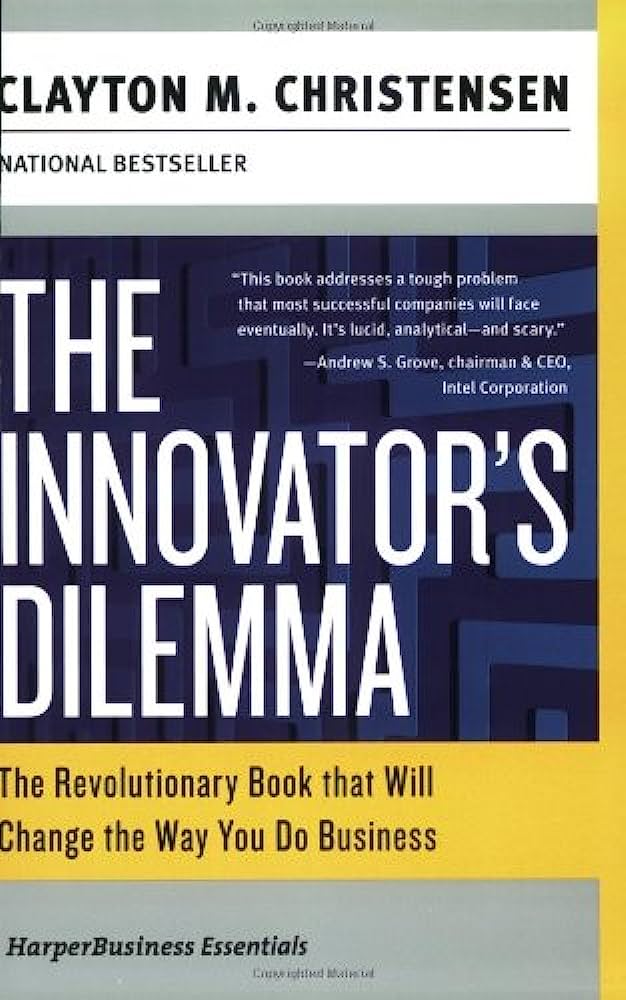Emotional Intelligence: Why It Can Matter More Than IQ
RATING


In this book, Daniel Goleman goes into detail providing an extensive theory and explanation of human behavior, emotional intelligence and how to interpret emotions. He also builds out the five major components of emotional intelligence. Goleman has spent 12 years working for the New York Times authoring articles on human behavior, behavioral sciences and the brain. Goleman has a PhD in clinical psychology and personality development from Harvard.
Even though this book was published 25 years ago the basics do not change. This book is a very in-depth dive into the fundamentals of emotional intelligence. Each chapter provides case study examples and discussions in ranging from leadership to family dynamics based. Goleman describes how the emotional mind is just as important as the rational one, really emphasizing with examples throughout history on just how important emotional intelligence is. Its short, pithy chapters are full of anecdotes, while also being packed with science which do force the reader to have some patience. Goleman concisely culminates his ideas and strategies on emotional intelligence with five fundamental components of self-awareness, self-regulation; internal motivation; empathy; social skills. He goes on about the importance of emotional intelligence providing a roadmap for individuals and leaders alike to pursue a better understanding of one’s own emotions and thus the ability to evaluate those around them.
One has to appreciate just the sheer volume of knowledge that Goleman pours into this book. It is a true testament to his experience and education in the field. The book provides valuable insights resulting in a self-reflection of ones own emotions and understanding of the world while supplying the tools and stimulating the reader, to begin critically evaluating the people around them based on their behavior. The fundamentals have remained unchanged over the last 25 years there for the basic principles can still be useful.
The level of detail in this book is impressive but can also become redundant over time. Moreover, this is not a quick read and will require patience. While Goleman has fascinating insights throughout the book, unfortunately, time over time the examples he uses begin to seem mundane and repetitive. Furthermore, a lot of what can be derived from the book can also be understood as common sense, and for some who consider themselves emotional aware this may come across as dull. Finally, one of the most important factors to consider is how much the world has evolved in 25 years. While the fundamental understanding of emotional intelligence will remain unchanged, the effect of the digital world on behavior and communication should not go without notice.
Everyone knows that high IQ is no guarantee of success, happiness, or virtue, but until “Emotional Intelligence, we could only guess why. Daniel Goleman’s brilliant report from the frontiers of psychology and neuroscience offers startling new insight into our “two minds”–the rational and the emotional–and how they together shape our destiny. Through vivid examples, Goleman delineates the five crucial skills of emotional intelligence, and shows how they determine our success in relationships, work, and even our physical well-being. What emerges is an entirely new way to talk about being smart.
The best news is that “emotional literacy” is not fixed early in life. Every parent, every teacher, every business leader, and everyone interested in a more civil society, has a stake in this compelling vision of human possibility.
For anyone who would like to refine their emotional intelligence skills or garner a deeper understanding of the field, this book provides value. It can help leaders, managers or individuals alike access new lines of thinking about the people around them and how to interact with them. He also establishes a foundation of the five principles and illustrates them in case studies which can be understood from a tactical application perspective

This book is primarily research-based with some tactical applications
See content on this topic

Sales training for front line along with basic development and coaching principles for line management.
Understanding how leaders must evolve with relation to the evolution of business models, new management models, and the significant changes to the workforce with Digital Natives now making up more than 50% of the workforce globally.
Understand the theory and mechanics of developing and managing a customer-centric and experience-driven corporate culture that is consistent and stable and includes elements of Employee Experience (EX) and Employee Relationship Management (ERM).
Understanding the evolution of leadership styles, management models, organizational structures, performance measurement and guiding change in the evolution of business models from product-centric to customer-centric and even relationship-centric.
Understand how to manage both internal and external digital transformation while considering the landscape for digital business models and the effect on traditional business models. Understanding organizational readiness for transformation and the role of corporate culture in managing transformations.
The changes in consumer behavior, employee behavior, and the evolution of business models in the digital age cause significant difficulties and imperatives for leaders who must develop new skills and evolve their leadership styles to be effective in this fast changing, challenging, and competitive environment.




 Copy Link
Copy Link
 E-mail
E-mail
 LinkedIn
LinkedIn
 Facebook
Facebook
 Telegram
Telegram
 WhatsApp
WhatsApp















 Go Back
Go Back
Leave a Reply
You must be logged in to post a comment.